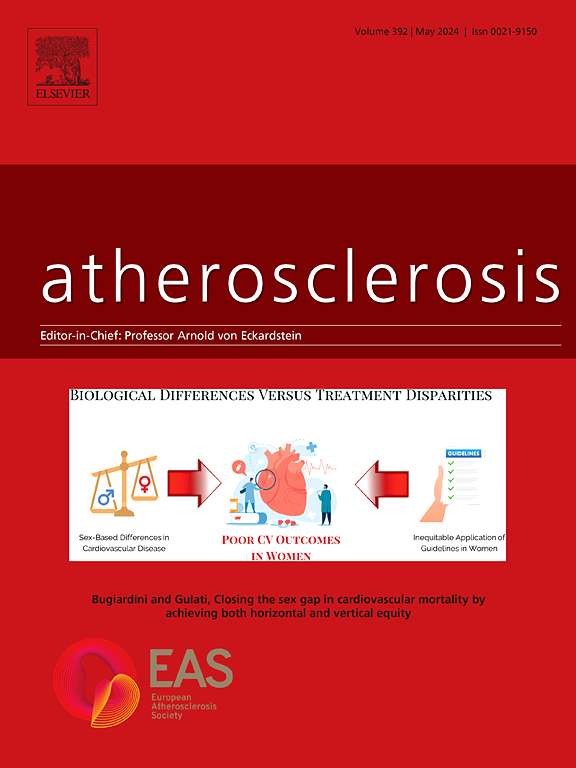Association of guideline-directed managements of chronic kidney disease with mortality among patients with cardiovascular disease: Insight from a multi-center cohort in China
IF 4.9
2区 医学
Q1 CARDIAC & CARDIOVASCULAR SYSTEMS
引用次数: 0
Abstract
Background
Chronic kidney disease (CKD) represents one of the most significant risks for death, in patients with existed cardiovascular disease (CVD). This study aimed to investigate whether the excess risk of death in these patients could be reduced or eliminated through joint intensive control of blood pressure, glucose and renin-angiotensin system inhibitors (RASi) treatment, among CVD patients with CKD.
Method
Overall, 6222 CVD patients with CKD and 9274 matched CVD patients who were free of CKD, hypertension and diabetes from CIN II cohort (NCT05050877), were included in the study. The association of all-cause and cardiovascular mortality with guideline-directed management was detected by Cox proportional hazards regression analysis.
Result
During 5.6-year median follow-up, 3076 (19.9 %) patients died and 1578 (10.2 %) for cardiovascular cause. Among patients with CKD, risk factor controls and treatment were associated with a reduction in the risk of all-cause and cardiovascular mortality. Furthermore, compared to the non-CKD patients, both risk factors within the target ranges plus RASi therapy could theoretically eliminate the excess risk of all-cause (1-year: adjusted hazard radio [aHR] = 0.79, 95 % CI: 0.39–1.63; long-term: aHR = 0.99, 95 % CI: 0.73–1.34) and cardiovascular (1-year: aHR = 1.26, 95 % CI: 0.82–1.93; long-term: aHR = 1.15, 95 % CI: 0.75–1.76) mortality associated with CKD in stage 3a patients. Similar results were observed in patients at CKD stage 3 b.
Conclusion
CVD Patients with early CKD who had controlled blood pressure, glucose and took RASi therapy showed no excess risk of all-cause and cardiovascular death compared to the those without CKD.

求助全文
约1分钟内获得全文
求助全文
来源期刊

Atherosclerosis
医学-外周血管病
CiteScore
9.80
自引率
3.80%
发文量
1269
审稿时长
36 days
期刊介绍:
Atherosclerosis has an open access mirror journal Atherosclerosis: X, sharing the same aims and scope, editorial team, submission system and rigorous peer review.
Atherosclerosis brings together, from all sources, papers concerned with investigation on atherosclerosis, its risk factors and clinical manifestations. Atherosclerosis covers basic and translational, clinical and population research approaches to arterial and vascular biology and disease, as well as their risk factors including: disturbances of lipid and lipoprotein metabolism, diabetes and hypertension, thrombosis, and inflammation. The Editors are interested in original or review papers dealing with the pathogenesis, environmental, genetic and epigenetic basis, diagnosis or treatment of atherosclerosis and related diseases as well as their risk factors.
 求助内容:
求助内容: 应助结果提醒方式:
应助结果提醒方式:


